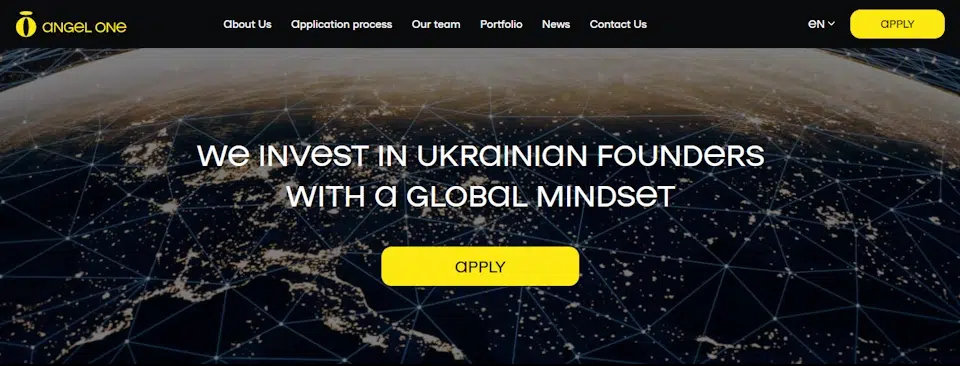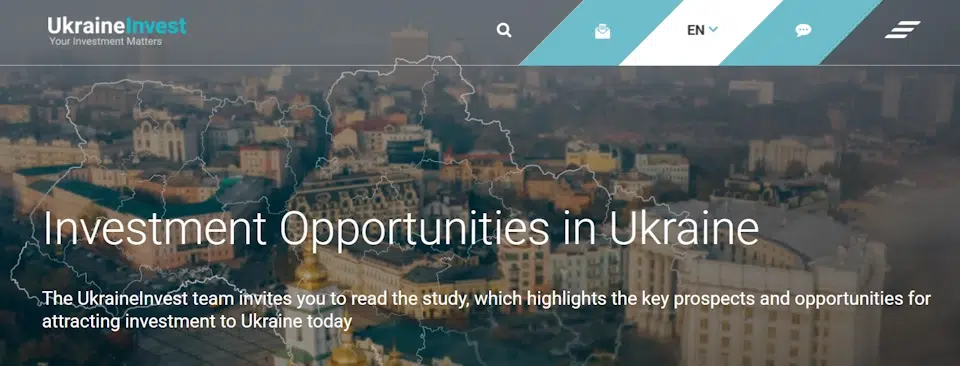IT Industry in Lviv, Ukraine: Market Research
Dive into comprehensive insights on Lviv’s thriving IT sector with our in-depth market research reports and industry analysis. Stay ahead with the latest trends and data today! ↓

Overview of Ecosystem
Lviv has emerged as one of Ukraine’s largest tech hubs, with a vibrant ecosystem spanning software development outsourcing firms, product companies, and startups. The city boasts a strong talent base fed by local unis and a collaborative IT community.
Key characteristics of Lviv’s tech scene include:
Number of Companies
Over 600 tech companies operate in Lviv and the surrounding region as of 2023 – up from just 192 in 2015. This accounts for about 28% of all Ukrainian tech companies having a presence in Lviv, underscoring Lviv’s significance as an IT center.
Outsourcing & Services Focus
Lviv’s IT industry has historically been dominated by IT outsourcing and services companies. Major firms like SoftServe, Intellias and ELEKS were founded in Lviv and have their headquarters there. Many global IT providers (e.g. EPAM, GlobalLogic, Luxoft) also maintain large offices in Lviv. This outsourcing legacy means a steady export income stream, though the community is actively encouraging more product development and startups.
Product Companies & Startups
Alongside outsourcing, Lviv hosts a growing startup scene. The city fosters innovation through initiatives like the Tech Startup School and Lviv Open Lab for STEAM education. Annual tech events such as IT Arena (Lviv’s largest tech conference) feature startup competitions, connecting founders with investors (the 2024 competition had a $5 million total investment fund and awarded cash prizes to top startups.
Local startups gaining traction include examples like andcards (coworking software) and Zeely (a mobile web design app), which recently raised a $1M seed round from a Lviv-based angel fund.
Community & Infrastructure

The Lviv IT Cluster plays a central role in networking companies with academia and authorities. Lviv’s universities (15 higher education institutions citywide) supply a constant pipeline of tech graduates. An innovation park is under construction to co-locate tech firms and research, and the city has been recognized for its innovative environment (e.g. 3rd place in the EU’s 2023 European Capital of Innovation awards).
This supportive ecosystem of meetups, events, and educational programs makes Lviv a fertile ground for IT businesses.
Market Size and Growth Trends
The LvivIT sector has experienced robust growth over the past several years, expanding even through the challenges of war. Key market size metrics and trends include:
IT Industry Output
The total turnover of Lviv’s IT industry exceeded $2 billion in 2022. This continued a steady growth trajectory – rising from ~$1.4 billion in 2020 to $1.8 billion in 2021, and then crossing $2B. Despite the war-related disruptions, Lviv’s tech sector maintained double-digit growth in 2022, thanks to strong export demand.
National Context
Lviv now contributes a significant share to Ukraine’s tech exports. In 2023, Ukraine’s IT services exports totaled $6.7 billion (the country’s largest service export category). Lviv’s portion is roughly 30% of that (given its ~$2 billion output), reflecting the city’s outsized role. Notably, even under wartime conditions, IT remained Ukraine’s most resilient sector, with only a slight dip or plateau in 2023 export revenue after years of continuous growth.
Post-2022 Resilience
Lviv’s IT market has demonstrated resilience amidst war. Companies invested in backup infrastructure (generators, Starlink internet) to counter power outages, ensuring continuity in client deliveries. By mid-2023, industry analysts observed stabilization: the IT sector’s share of GDP held around 4.9-5% and new projects were growing again (27% of firms even reported increasing pipelines of new deals).
This adaptability suggests the Lviv tech market is poised to resume faster growth as conditions normalize, fueled by global demand and potential reconstruction-related tech needs.
Key Players and Company Profiles
Lviv’s IT landscape is populated by both home-grown tech companies and global firms with local offices. Below are some key players:
SoftServe
Founded in Lviv in 1993, SoftServe is one of Ukraine’s largest IT service companies. It specializes in software development and consulting. Today SoftServe is a global company with 12K+ employees (HQ in Lviv, with offices worldwide). It serves clients in healthcare, retail, finance, etc., and is known for its R&D in emerging tech. SoftServe is a pillar of the local tech community (a co-founder of Lviv IT Cluster) and has continued to expand, hiring hundreds in Lviv even during 2022.
Intellias

A Lviv-headquartered software engineering firm (founded 2002) with ~2,500–3,000 employees. Intellias provides development services in automotive, navigation, FinTech, and telecom domains. It has attracted Tier-1 clients (e.g. BMW, HERE Technologies) and consistently ranks among top Ukrainian outsourcing companies.
ELEKS
A Lviv-based IT services and product development company (~1,500 staff). ELEKS delivers software solutions (incl. AI/ML, data science, and product design) for global enterprises. Founded in the 1990s, it remains headquartered in Lviv and actively partners with universities for talent. ELEKS was also a founding member of the Lviv IT Cluster.
N-iX
An IT outsourcing provider that started in Lviv (~2,000 employees). N-iX offers software development and tech consulting to clients in North America and Europe. It has grown into one of the top Ukrainian IT companies, with delivery centers in Lviv and other cities.
Global IT Firms
Many multinational tech companies have significant operations in Lviv. For example, EPAM Systems (NYSE: EPAM) and GlobalLogic (Hitachi group) both have large development centers in Lviv employing hundreds of engineers. Other global players present include Luxoft (DXC), Cisco, Oracle, and numerous smaller foreign R&D offices.
Their presence speaks to Lviv’s attractiveness for offshoring and R&D; Ukraine hosts 100+ R&D centers of international companies and Lviv is a preferred destination due to its talent pool and proximity to the EU.
Notable Startups/Product Companies
While services dominate, Lviv has produced promising startups and product companies. Grammarly and GitLab – both unicorns founded by Ukrainian teams – have some roots and staff in Lviv (though they relocated headquarters abroad). Local startup successes include People.ai (AI sales analytics, founded by a Lviv-born entrepreneur, now a unicorn valued over $1B, Reface (AI face-swap app), and Respeecher (voice cloning tech) which have drawn international attention.
Efforts like Lviv Tech Angels (an angel investor network) and new venture funds (e.g. Angel One Fund linked to Ukrainian Catholic University are channeling outsourcing profits into startup investments. This is slowly diversifying the roster of tech companies in Lviv beyond outsourcing, with an eye toward higher-value product businesses.
IT Talent Pool and Salaries
Lviv offers a deep talent pool of IT professionals with competitive salaries.
Talent Pool Size
As of 2023, there are over 51,000 IT specialists working in Lviv city and region. This represents a significant increase, partly due to war-related migration of tech workers from eastern/central Ukraine – about 40% of Lviv’s tech employees relocated from other regions amid the 2022 invasion Lviv’s tech workforce now constitutes roughly one-fifth of all IT professionals in Ukraine. The workforce skews experienced: an estimated 82% of Ukrainian IT professionals are at middle, senior, or lead level, and in Lviv 41% are Seniors.
The typical Lviv IT specialist is 26–35 years old, often with a technical degree, and many have 6+ years of experience in the industry.
Skill Distribution
Lviv’s companies cover a broad range of skills. The majority of specialists are software engineers (across stacks like JavaScript, Java, Python, C++, .NET, etc.), but the ecosystem also includes QA engineers, DevOps/SRE specialists, UI/UX designers, data scientists, business analysts, and project managers. Engineering roles dominate – nationally about 60% of tech specialists are in purely technical (development or engineering) roles.
Thanks to the outsourcing focus, English proficiency is high (over 80% of Ukrainian IT workers have intermediate or higher English and many Lviv engineers are accustomed to working with international clients.
Education Pipeline

Lviv is a city of education, with 130,000 students across its universities. Each year thousands of graduates enter the IT field. The Lviv IT Cluster in cooperation with local universities has modernized 19 bachelor’s programs in IT specialties, enrolling 4,500 students in fields from software engineering and AI to cybersecurity and IT sales. Top institutions feeding the IT talent pipeline include Lviv Polytechnic National University, Ivan Franko National University of Lviv, and the Ukrainian Catholic University – all known for strong computer science and engineering programs.
This ensures a steady flow of junior specialists to replenish the workforce, although currently the share of juniors remains relatively low (the industry has been hiring more experienced staff).
Salary Benchmarks
IT salaries in Lviv are lower than in Western Europe or the US, which is a major draw for outsourcing. At the same time, they are among the highest in Ukraine (second only to Kyiv for most roles). All figures are typically net (after tax), given Ukraine’s 5% flat tax regime for IT contractors.
Overall, Lviv’s salary levels are 20-40% lower than in Poland or other CEE EU countries for comparable IT roles, and a fraction of Silicon Valley salaries. This cost arbitrage, combined with a strong skillset, is a key reason international companies invest in Lviv. (For context, a mid-level Java developer in Ukraine earns ~$30k/year, versus $60k+ in Western Europe. The recent trend (2023) has seen a slight dip in salaries for the first time in years – median developer pay fell ~4% in H2 2023 – due to market adjustment in wartime. But generally, IT salaries have shown an upward trajectory over the past decade, and companies must offer competitive raises to retain top talent.
Investment Activity and Funding Landscape
Investment in Lviv’s tech sector comes in multiple forms – venture capital for startups, reinvestment by IT service companies, and government or donor grants. Recent data highlights a cautiously improving funding landscape:
Venture Capital Funding
After a wartime slowdown in 2022–2023, startup funding in Ukraine rebounded strongly in 2024. Ukrainian startups raised about $209 million in 2023, and this doubled to $462 million in 2024. Lviv-based startups are a part of this rebound, although the lion’s share of big deals involved Kyiv or global companies. Some notable funding events with Lviv connections:
- Zeely, a Lviv-founded startup (mobile commerce tool), closed a $1 million seed round in 2023 with local angel investors.
- S.Lab, a Lviv startup (smart logistics), won the IT Arena 2023 startup competition, securing grants and investor interest.
- Andcards (coworking software) and KG (product studio) are examples of Lviv companies that have grown via angel/seed funding.
- Nationally, major late-stage rounds in 2023–2024 included Creatio ($200M, Series C), Preply ($70M), and defense-tech grants via the government’s Brave1 program ($40M distributed) – these reflect opportunities that Lviv startups can tap into, especially in SaaS and defense-tech verticals.
Local VC and Angels

Lviv’s ecosystem is developing local funding sources. The Angel One fund (associated with UCU) and Lviv Tech Angels network focus on early-stage investments in Lviv-based startups. While activity paused in 2022, these groups are poised to ramp up investing as the situation stabilizes. Larger Ukrainian VC firms (like AVentures, Horizon Capital, TA Ventures) and international funds (e.g. Flashpoint, ffVC) are also scouting regional startups. For foreign VCs, Lviv startups often incorporate abroad (Delaware or EU) for deals, but keep engineering in Ukraine.
Corporate and Service Sector Investment
The established IT outsourcing companies reinvest in the region via expanding offices and launching spin-offs.
For instance, SoftServe had plans for a corporate venture fund (halted by the war) and continues to fund internal R&D and product labs. Intellias and ELEKS similarly invest in innovation and occasionally acquire smaller startups. Moreover, many service companies are diversifying into developing their own software products, effectively channeling outsourcing revenue into product development.
Grants and Government Programs
The Ukrainian government and donors have provided funding support to tech. The Ukrainian Startup Fund (USF), pre-war, gave equity-free grants (up to $50k) to early-stage startups – several Lviv startups were beneficiaries.
Post-invasion, USF has refocused on military-tech startups. Additionally, USAID and EU programs have offered grants for IT businesses to retain talent and continue exports during the war. Lviv IT Cluster itself raised a fund for wartime projects (over $2.7M for humanitarian/defense needs), indirectly supporting companies’ stability. These non-dilutive funding sources help the ecosystem endure challenges and will likely continue as reconstruction efforts ramp up, presenting opportunities for IT firms in Lviv to win grants for digital infrastructure and e-government projects.
Trends, Challenges and Opportunities in Lviv’s IT Sector
Trends
- Despite the war, Ukraine’s tech sector has demonstrated remarkable resilience, maintaining approximately 250,000 professionals within the country while retaining 84% of client contracts.
- The talent pool has evolved toward greater seniority and expertise in high-demand areas like AI/ML, cybersecurity, and DevOps, with fewer junior-level hires.
- Lviv’s tech ecosystem is transitioning from pure outsourcing toward proprietary product development and startups, inspired by success stories like Grammarly.
- Sectoral specializations are emerging, including defense tech (UAVs, surveillance systems), fintech, enterprise SaaS, and IT services for manufacturing and automotive industries, particularly for European clients.
- Geographically, while North America remains significant, Lviv tech companies are increasingly diversifying toward EU markets (Germany, UK, Scandinavia) due to cultural compatibility and time zone alignment, with growing interest in Middle Eastern and Asia-Pacific opportunities.
Challenges
Lviv’s IT industry faces significant wartime challenges including security risks, talent disruption, infrastructure strain, economic vulnerabilities, and regulatory complications that require strategic adaptation by businesses operating in the region.
- Security Risks: Despite being safer than eastern Ukraine, Lviv faces air raids and missile threats requiring business continuity planning. Male IT professionals (18-60) can’t freely travel abroad due to martial law, limiting client visits and event attendance.
- Talent Issues: War caused some brain drain with many specialists relocating. Competition for developers is intense, with mobilization (about 5% of staff) creating skills gaps. University partnerships are crucial for maintaining talent pipeline.
- Infrastructure Pressure: Population growth from internal displacement increased office rents. Many companies adopted remote work, while others invested in secure facilities. Energy grid vulnerability requires backup solutions like generators and Starlink.
- Outsourcing Vulnerability: Heavy reliance on foreign clients makes the sector susceptible to global economic downturns, as seen in the slight 2023 revenue dip. Firms need diversification into higher-value services to compete with other low-cost regions.
- Regulatory Challenges: Foreign investors face bureaucratic hurdles with regulations, banking rules, and cross-border payments under martial law. IP protection concerns require careful due diligence.
Opportunities
IT sector presents five key advantages: strategic EU proximity, strong growth prospects, government support, international partnerships, and high-quality talent at competitive costs:
- Nearshoring Advantage: Lviv is just 70 km from Poland, offering EU proximity with minimal travel time and same time zone for European clients.
- Growth Opportunities: Post-war reconstruction and global digital transformation create demand for IT services, with Lviv companies well-positioned for fintech, healthcare, and logistics contracts.
- Government Support: Ukraine’s Diia City program provides special incentives for tech businesses, while national grants and education reforms benefit Lviv’s IT sector.
- International Connections: Lviv tech companies are forming partnerships with Western firms and attracting M&A interest, opening doors to new markets.
- High-Quality Talent: Experienced, well-educated IT professionals with Fortune 500 client experience are available at roughly one-third Western European costs, with lower turnover rates.
Business Environment for Foreign Investors and Market Entry Considerations
For foreign investors and companies evaluating Lviv as a destination, the business environment offers several advantages along with practical considerations regarding legal and labor matters:
Regulatory Regime and Diia City
Ukraine has made strides in creating an investor-friendly regulatory framework for IT. In 2022, the government launched Diia City, a special legal regime tailored to IT companies.

Key benefits of Diia City include a favorable tax model (effectively 5% personal income tax for IT employees/contractors, compared to the standard 18%, plus a low 9% corporate tax on distributed profits as an alternative to 18% profit tax). Both Ukrainian-owned and foreign-owned companies can register under Diia City and enjoy clear IP rights protection, simplified employment law, and options for contract flexibility. By early 2025, over 800 tech companies had become residents of Diia City, signaling strong uptake.
For an investor, this means a new entity in Lviv can operate with Western-style business practices (e.g. non-compete clauses, stock options for employees are legally recognized under Diia City) and benefit from considerable tax savings.
Talent Engagement Models
Traditionally, Ukrainian IT companies employed staff as private entrepreneurs (“FOP” status) – a model where each worker is an independent contractor paying a 5% flat tax.This model, unofficially tolerated by authorities for years, kept labor costs low and gave companies flexibility in hiring/firing. Foreign firms entering Lviv have a few options:
- Classic outsourcing vendor model – partner with an existing Lviv software company which will provide teams (this outsources the HR and admin burden).
- Open a local subsidiary – either as a Diia City entity or standard LLC, and hire engineers directly (commonly still as contractors or Diia City “gig-contractors” to utilize the 5% tax).
- Employer of Record (EOR) – use a third-party service (like Alcor, Deel, etc.) to employ tech talent on the ground on your behalf.
The labor laws in Ukraine are flexible for IT: even under standard law, fixed-term and freelance contracts are common. Diia City further introduces the concept of “gig contracts” which combine elements of employment and contract work, giving companies more leeway in defining relationships. Foreign investors generally find it straightforward to hire in Lviv due to this flexibility and the prevalence of English-speaking HR/recruitment firms that specialize in IT.
Costs and Salaries
As detailed earlier, the cost of labor is a major advantage. An investor can expect to pay total monthly compensation (salary) of ~$2,500 for a mid-level engineer in Lviv.
Office space rental in Lviv, while it increased in 2022, is still relatively low (compared to EU cities) – many Class A offices are available at competitive rates, and co-working spaces (e.g. Regus, local providers) are plentiful for starting small teams. Overall, a foreign company can operate in Lviv at 50-60% lower unit costs than in Western Europe, even after including overhead and bonuses. The Ukrainian hryvnia exchange rate has been stable under wartime controls, and inflation in the IT sector is mainly in salaries (which are often pegged to USD anyway).
Legal and IP Considerations
Ukraine’s IP protection regime is robust, having harmonized many laws with the EU as part of the association process. When hiring developers in Lviv, companies typically have employees/contractors sign strict IP rights assignment agreements (often dual-language contracts).
Under Diia City, any IP created by a worker under a gig contract automatically belongs to the company by law. Foreign investors should of course conduct due diligence (e.g., ensure any legacy code or open-source usage is properly licensed), but generally IP risk is low. Ukraine is also a member of WIPO and adheres to international IP treaties. In terms of dispute resolution, many IT contracts specify international arbitration (since court enforcement in Ukraine can be slow), but the need rarely arises in IT where relationships are stable. Investors might consider setting up a holding company in an EU jurisdiction for the Ukrainian subsidiary if that provides additional peace of mind or easier integration into corporate structure.
Taxation and Repatriation
With Diia City or FOP schemes, the tax burden is very light on salaries (5% flat). The corporate profit tax can be 18%, but Diia City allows opting for a Distributed Profit Tax (only taxed when funds are withdrawn) at 9%, which can be efficient.
During martial law, there are some currency controls – e.g., dividend repatriation to foreign parent companies is subject to National Bank approval. However, paying abroad for services (including to a parent entity) is allowed, so companies often manage cash via inter-company service agreements. It’s advisable to get local tax consulting, but many foreign businesses have navigated this without major issues. Ukraine also has a wide treaty network to avoid double taxation on international income.
Labor Regulations
Ukrainian labor law traditionally was employee-friendly (harder to terminate permanent staff without cause), but in IT this has been mitigated by the widespread use of contractor status. Furthermore, new laws in 2022 have somewhat liberalized employment due to martial law needs. Foreign employers will find that they can scale teams up or down with relative ease in Lviv compared to strict labor regimes in some EU countries. Social contributions on direct employment are around ~22% (paid by employer) but remember most use the contractor model to minimize this.
Also, there is no strict cap on working hours or overtime in the IT context as long as it’s mutually agreed (Ukrainian IT workers often accommodate flexible schedules to overlap with US or Asia timezones as needed).
Government and Local Support

Foreign investors can expect support at both national and local levels. The Ukrainian government, through UkraineInvest and the Ministry of Digital Transformation, actively facilitates IT investment.
Lviv’s city administration likewise has an investment support office (investinlviv.com) to help with permits, office searches, and introductions. The Lviv IT Cluster can also assist new companies in integrating into the community, finding talent, and understanding local nuances. There are networking events specifically for foreign tech executives to meet local firms and officials.
Cultural Compatibility
Lviv’s workforce is culturally quite aligned with Western business norms. Professionals here are used to Agile methodologies, English communication, NDAs, and IP assignments – standard practice with US/EU clients for decades.
Business etiquette is similar to Western Europe. Moreover, Lviv’s general environment – from its charming historic center to a growing expat community – is welcoming for foreign managers who might relocate. Several international schools operate in Lviv, and English is commonly spoken in business circles. These factors reduce the friction for foreign companies setting up operations.
Risks and Mitigations
The primary concern for new investors is the war uncertainty.
Mitigations include starting small or outsourcing in Lviv initially, ensuring solid insurance and emergency plans (e.g., temporary relocation to Poland), and using cloud-based servers outside conflict areas. Companies should also explore political risk insurance from MIGA or DFC. Those investing now often gain strong loyalty, positive PR, and a first-mover advantage post-war.
Conclusion
Lviv’s IT industry is a testament to adaptability and growth under adversity. The city offers a rich ecosystem of tech talent and companies, cost-effective operations, and improving business conditions that are attractive to investors.
While challenges from the ongoing conflict and historical outsourcing-dependence exist, the trends point toward a maturing market with increasing opportunities in innovation, product development, and partnership with foreign firms. For investors and companies considering market entry, Lviv presents a compelling mix of high-caliber talent, supportive community, and strategic location – positioning it as a key tech destination in Eastern Europe with a significant upside in the years ahead.
Sources
- Lviv IT Cluster – Regional IT Industry Overview & Statistics.
- European Commission (iCapital Awards) – Lviv City Innovation Profile.
- AIN.UA / DOU.UA – Ukrainian IT Salary Surveys.
- Lviv IT Cluster – IT Research Ukraine Report (War Impact).
- CodeUA Tech News – Ukrainian Startup Funding Summary.
- RFE/RL – Report on Lviv Tech Hub Evolution.
- Nucamp Blog – Ukraine Tech Hub Insights.
- Alcor BPO – Ukraine IT Market and Salary Report.
- AIN.UA – IT Arena Startup Competition Results.
Note: We’ve spent a lot of time and effort creating this research. If you intend to share or make use of it in any way, we kindly ask that you include a backlink to our website – EchoGlobal.


